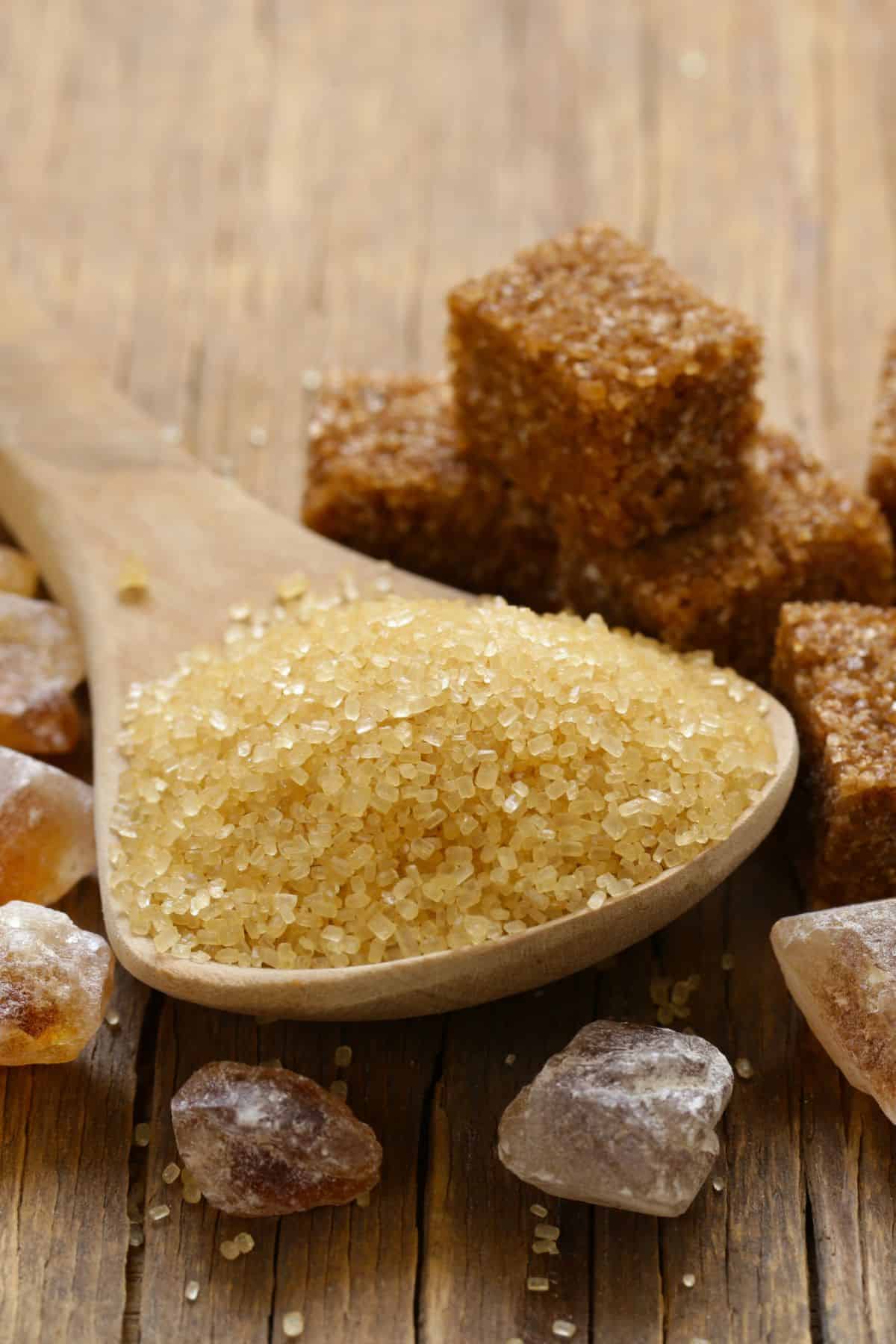Cane Sugar Processing: From Area to Table-- A Step-by-Step Guide
Cane Sugar Processing: From Area to Table-- A Step-by-Step Guide
Blog Article
A Comprehensive Introduction of the Wellness and Economic Ramifications of Walking Cane Sugar Handling on Neighborhood Areas
Walking stick sugar handling plays a critical function fit the financial landscape of local neighborhoods, offering job opportunity and boosting supplementary industries. Nevertheless, the health and wellness ramifications related to high sugar consumption can not be neglected, as they add to rising prices of obesity and diabetic issues. This nuanced vibrant welcomes an essential examination of how communities can maximize economic gains while addressing the pushing wellness challenges they encounter. The exploration of educational efforts and lasting practices might simply hold the trick to resolving these contrasting interests. What strategies might areas implement to attain this equilibrium?
Financial Advantages of Walking Cane Sugar Handling
Walking stick sugar processing supplies significant economic benefits that expand beyond the instant agricultural market. The cultivation and handling of sugarcane create many task opportunities, from farming to manufacturing and circulation. This employment generation not only supports neighborhood economic climates yet also promotes area development by supplying steady revenue sources for families.
Furthermore, the sugar industry promotes supplementary services, including transport, tools supply, and product packaging services (Cane Sugar Processing). As these industries grow, they add to a more durable economic structure, enhancing general neighborhood durability. The export capacity of processed cane sugar better enhances economic benefits, placing regions as affordable players in worldwide markets
Financial investment in modern-day handling centers can lead to increased performance and performance, thereby reducing waste and optimizing source use. This shift not only benefits the regional economic situation however also sustains sustainability initiatives by decreasing ecological influences.
In addition, the revenue created from cane sugar processing can be reinvested in regional framework, education and learning, and healthcare, promoting all natural neighborhood development. On the whole, the economic benefits of walking cane sugar handling are complex, supplying a structure for sustaining success in agricultural regions.
Health And Wellness Threats Related To Sugar Consumption
Excessive sugar usage postures considerable health and wellness risks that require severe focus. High intake of included sugars, particularly from refined beverages and foods, has been connected to many wellness difficulties.
Additionally, high sugar intake is linked with cardiovascular disease. Raised blood glucose levels can result in insulin resistance, a precursor to numerous heart-related issues. Furthermore, sugar can have damaging effects on oral wellness, resulting in dental caries and gum condition, as germs in the mouth prosper on sugar, creating acids that erode tooth enamel.
Furthermore, arising study suggests a possible web link between high sugar usage and mental wellness disorders, such as depression and stress and anxiety. As neighborhoods face these wellness threats, it becomes important to advertise awareness and encourage healthier nutritional selections. Dealing with sugar intake is essential not just for private health and wellness but likewise for the overall wellness of regional communities, emphasizing the need for comprehensive public wellness techniques.
Ecological Influences of Sugar Manufacturing
Often ignored in conversations concerning sugar's ramifications is the significant ecological influence of sugar production. The farming of sugarcane typically necessitates substantial land use, leading to deforestation, loss of biodiversity, and disruption of regional ecological communities. The conversion of forests and wetlands right into sugar ranches can lead to environment damage, threatening numerous types and modifying environmental balance.
Moreover, sugar production is resource-intensive, consuming considerable amounts of water for irrigation. This can cause deficiency of regional water resources, detrimentally affecting both farming practices and neighborhood access to clean water. Additionally, the usage of chemical fertilizers and pesticides in sugarcane farming can add to dirt degradation and water contamination, as runoff from these chemicals gets in neighboring rivers and lakes, impacting aquatic life and human wellness.
The environmental footprint reaches the processing stage, where energy intake and waste generation further aggravate ecological worries. Air contamination from burning sugarcane fields, in addition to greenhouse gas emissions, add to environment modification. As such, the environmental implications of sugar production warrant severe factor to consider, prompting stakeholders to embrace even more lasting methods to reduce these unfavorable impacts on regional ecological communities and communities.
Job Production and Area Development
The ecological challenges presented by sugar manufacturing are typically counteracted by its potential for economic advantages, particularly in task creation and area growth. The walking stick sugar industry serves as a significant resource of work in many backwoods, giving work across numerous skill levels, from agricultural labor to handling and distribution roles. This employment not only supports private family members however additionally contributes to the general financial vitality of local areas.
In addition, the establishment of sugar processing facilities boosts secondary organizations, such as transportation services, tools supply, and upkeep providers. As these businesses thrive, they produce extra tasks and reinforce regional economies. The income produced from the sugar market also brings about enhanced tax profits, which can be reinvested right into area solutions such as medical care, education and learning, and framework development.
Additionally, the sugar market frequently engages in community development campaigns, such as here supporting neighborhood schools and health programs, therefore enhancing the top quality of life for citizens. By fostering solid area ties and promoting economic growth, the cane sugar processing field plays a crucial function in uplifting local populaces, making it a vital element of lasting growth approaches in sugar-producing regions.
Balancing Wellness and Economic Growth
In browsing the intricacies of walking stick sugar handling, an important obstacle depends on balancing health and wellness considerations with economic development. The sugar market significantly adds to local economic situations by creating jobs, stimulating associated markets, and enhancing tax obligation profits. Nevertheless, the health and wellness implications connected with excessive sugar intake can lead to persistent illness such as obesity, diabetic issues, and cardiovascular concerns, which can problem public health and wellness systems and decrease workforce productivity.

Furthermore, regulative frameworks can play a crucial duty in assisting sector practices towards even more sustainable and health-conscious techniques. By cultivating partnership between government bodies, health companies, and the sugar sector, neighborhoods can browse the duality of health and wellness and economic growth, making certain that the benefits of walking cane sugar handling are equitably shared while focusing on public health.
Verdict
In conclusion, the handling of walking cane sugar presents both considerable financial advantages and remarkable wellness risks for regional neighborhoods. While it promotes work production and promotes regional development, the involved wellness concerns, particularly relating to obesity and diabetes mellitus, demand a mindful harmonizing act. By advertising accountable intake and investing in area education and lasting techniques, it is possible to maximize financial benefits while decreasing damaging health and wellness effects, therefore guaranteeing a much healthier future for regional populations.
In addition, sugar can have destructive impacts on oral health, resulting in dental caries and gum tissue condition, as germs in the mouth grow on sugar, creating acids that erode tooth enamel.
Resolving sugar consumption is essential not just for private health but likewise for the general health of neighborhood areas, stressing the demand for thorough public health techniques.
Often ignored in conversations regarding sugar's implications is the substantial ecological influence of sugar production. The wellness implications associated with too much sugar intake can lead to chronic illness such additional hints as obesity, diabetes, and cardiovascular problems, which can worry public health and wellness systems and diminish workforce efficiency.

Report this page